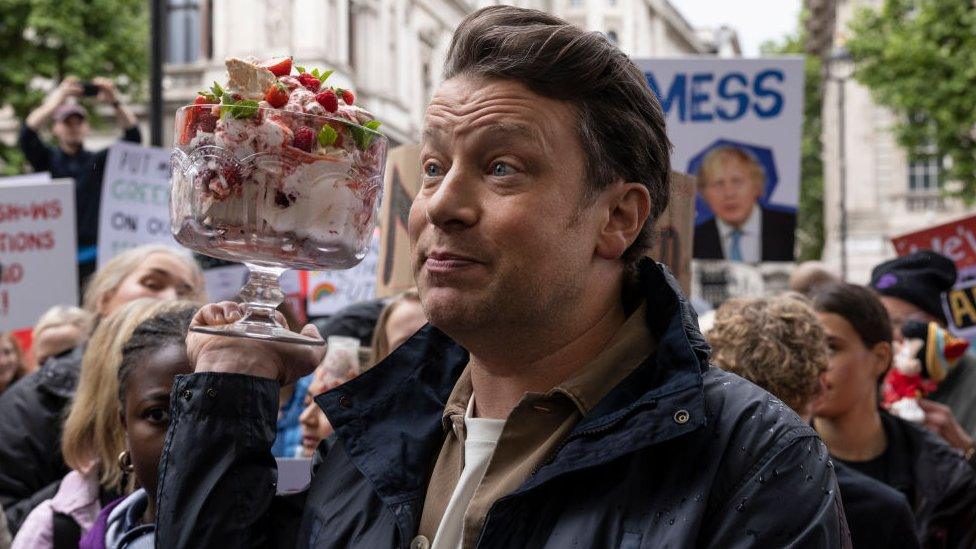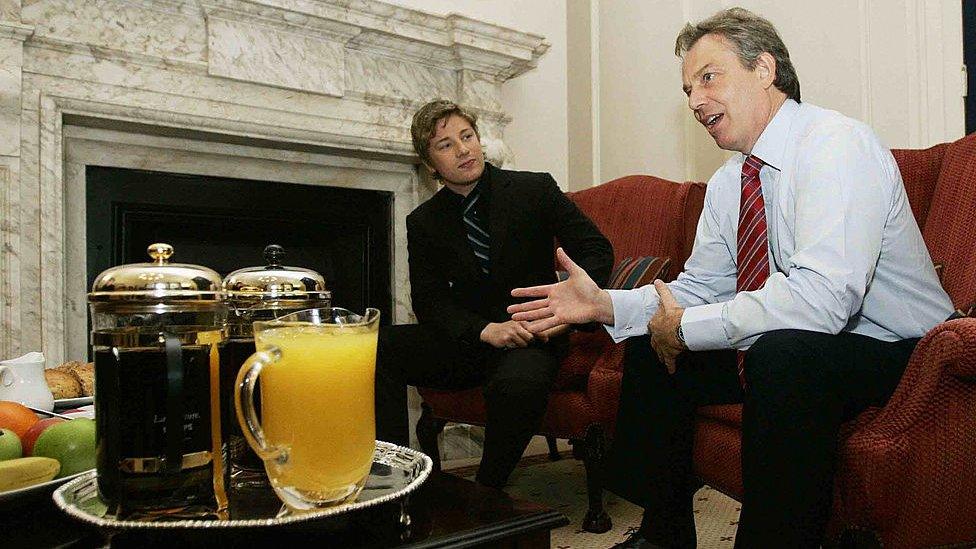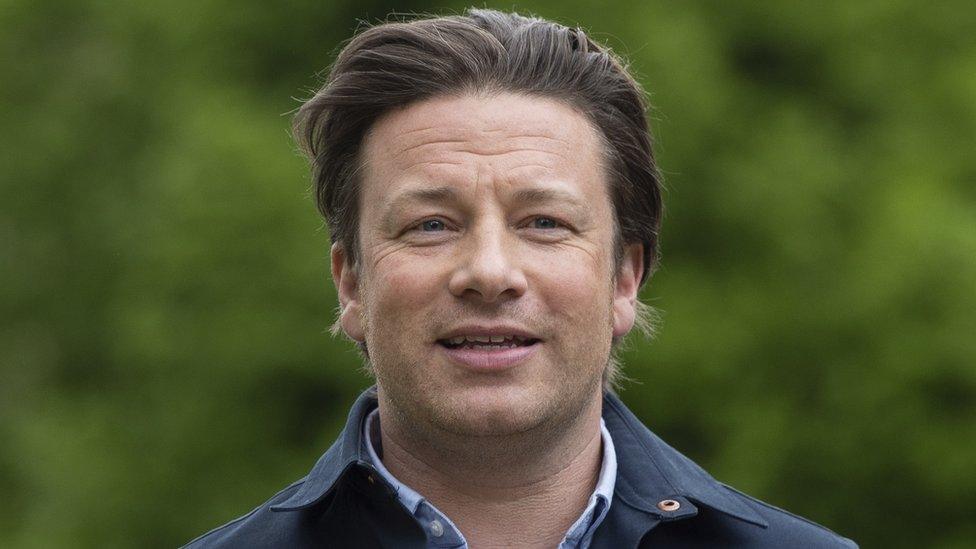Jamie Oliver: Sugar tax could fund school meals
- Published

Jamie Oliver has brought his campaign for better child nutrition to several prime ministers, including Boris Johnson last May
Jamie Oliver has said the millions being raised through the so-called sugar tax should be used to extend the provision of free school meals.
The chef and food campaigner wants at least 800,000 more children to benefit.
He was instrumental in persuading the government in 2018 to impose the levy on soft drinks with high sugar content.
Initially the funds raised were used for programmes to tackle childhood obesity but now Oliver wants them to be diverted to the school meals programme.
As it stands, in England and Wales children aged four to 16 are only eligible for the free meals if they live in a household with an annual income of less than £7,400. Oliver said all children living in households receiving Universal Credit should be included in the scheme. In England alone, this amounts to about 800,000 children.
The levy raised £336m in 2019-2020, the year after it was first introduced and Oliver said that "if you look at the money raised from the sugary drinks tax, it's not far off what's needed" to fund those extra meals.
He said such a move would help teachers, saying: "If you've got a couple of kids coming in [who are] not fed, that affects plan A, plan B and plan C of a teacher's hour."
"It's like passive smoking. We're talking about all children being affected by some of the kids maybe being disruptive or sleeping or any other kind of carnage that goes along with the poverty of hunger."
Watch: Musician Loyle Carner self-funds a cooking school for young people with ADHD
Oliver has long been campaigning on child nutrition and the need to improve the quality and availability of school dinners. His 2005 Feed Me Better campaign led to the government pledging £280m to tackle the school meals programme in England.
On Tuesday, Oliver brought these issues into focus as he guest-edited the Today programme on BBC Radio 4.
As part of the programme, former Chancellor George Osborne was interviewed and he said he was "disappointed" more was not done during his time in government to tackle childhood obesity
Speaking to Nick Robinson, Mr Osborne credited the chef with having been "very influential" in bringing about the soft drinks levy in 2016.
The former Chancellor also added that if he was still in government he would introduce more measures to tackle child obesity, such as a ban on junk food TV adverts and an expansion of the levy to include non-sugary products.
"That still has not been implemented. To my mind, that's very disappointing," Mr Osborne said.
He added: "Conservatives should not be afraid of sensible use of government to improve people's health because, by the way, that also reduces dependency on public services down the road."

Jamie Oliver was just 29 when he had talks with Tony Blair after presenting a petition signed by 271,000 people
Sir Tony Blair, who was prime minister when Oliver first started his campaign, said greater government focus on children's health was "absolutely fundamental".
He added: "I honestly don't think there's anything more important for the future of the country but to make sure we deal with this - early years education and wellbeing.
"For the sums of money you're going to spend on this early years, if you really have the will to do it, I promise you having been in government, you could find the money necessary to do this."
Speaking on the programme, Dr Camilla Kingdon, the president of the Royal College of Paediatrics, said that the government needs to look at regulating the field of baby food which can contain exceedingly high amounts of sugar.
A single pouch of baby food "could have as much as two-thirds of what adults should have in a single day", Dr Kingdon said.
She added that high rates of obesity see one in three children leaving primary school overweight or obese. "We need to get infant nutrition right. The health of the nation depends on this," Dr Kingdon said.
A Department for Education spokesperson said the government understood the pressures that many households were under. "That is why we are supporting more children and young people than ever before," the spokesperson added.
"Over a third of pupils in England currently receive free school meals in education settings and we have just announced a further investment in the National School Breakfast Programme, extending the programme for another year backed by up to £30m."
As is now tradition over the festive period, Radio 4's Today programme has invited seven guest editors to take over the programme this week. Nazanin Zaghari-Ratcliffe, Abba's Björn Ulvaeus and Sir Jeremy Fleming, the director of GCHQ, will be sitting in the editor's chair in the coming days - you can listen to the full week of programmes on BBC Sounds.
Related topics
- Published11 October 2022
